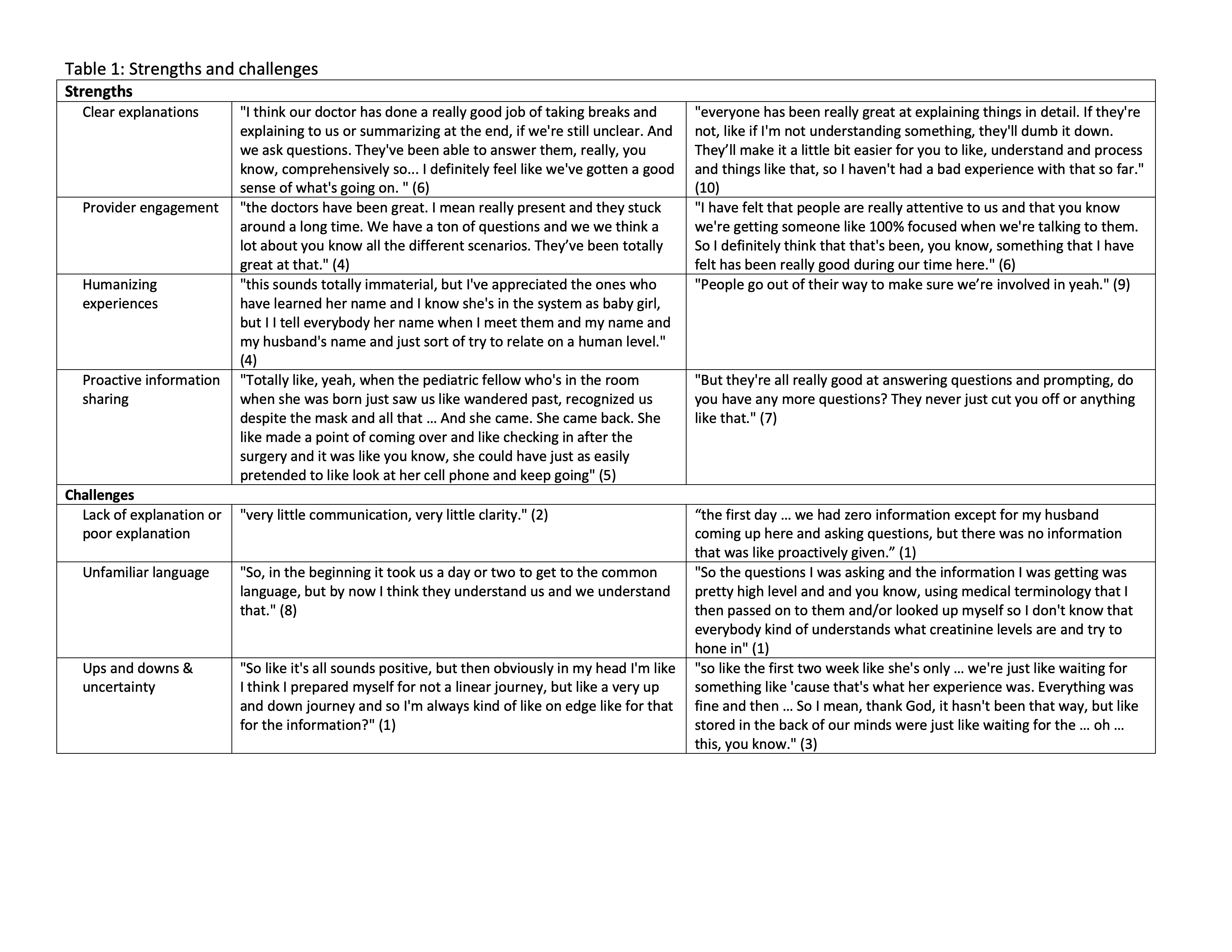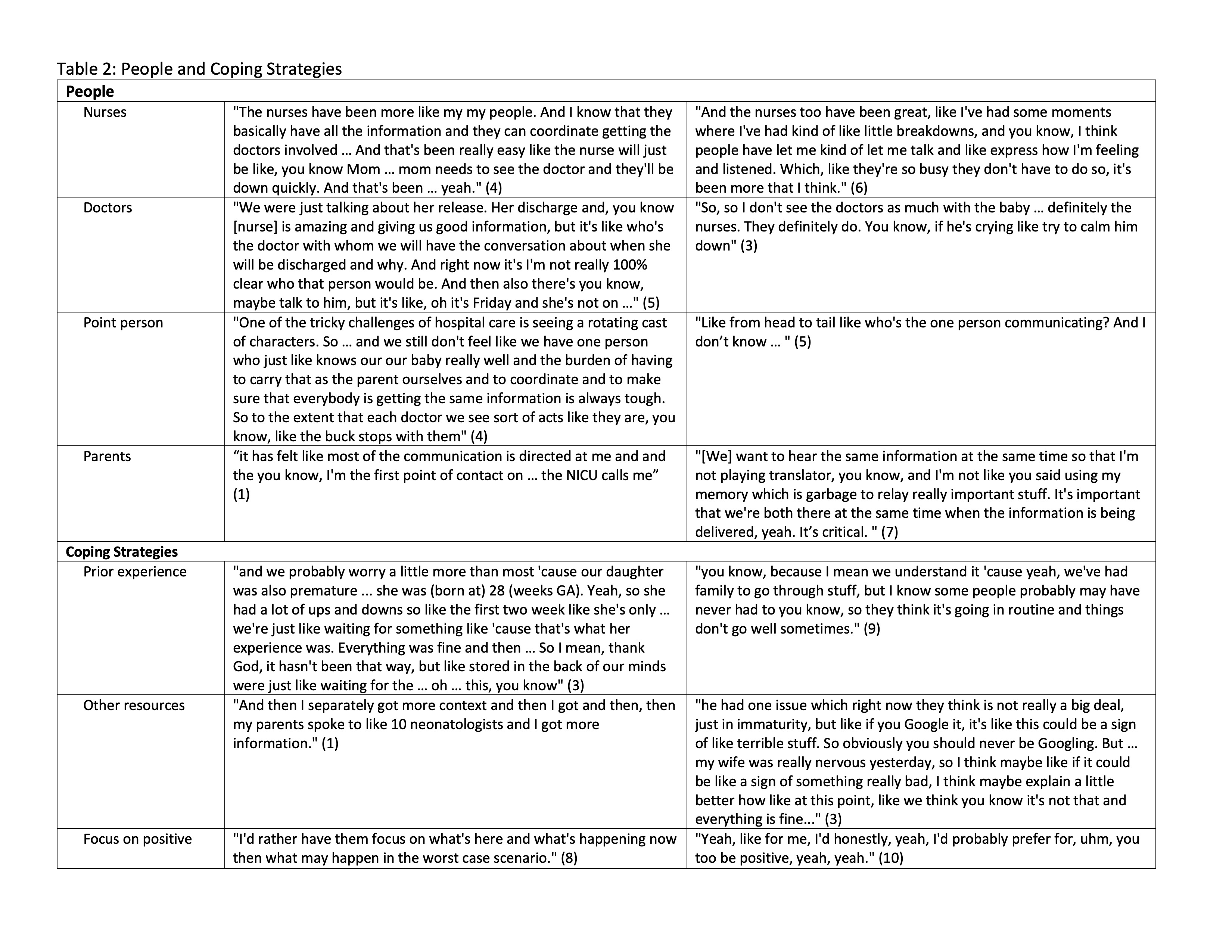Neonatal General
Neonatal General 3: Ethics, Parents Take the Lead
287 - Parent perspectives on communication quality in the Neonatal Intensive Care Unit
Publication Number: 287.132

Katherine Guttmann, MD, MBE (she/her/hers)
Assistant Professor
Icahn School of Medicine at Mount Sinai
Larchmont, New York, United States
Presenting Author(s)
Background: Poor quality communication in the Neonatal Intensive Care Unit (NICU) causes frustration, dissatisfaction, and is a threat to high-quality care. Prior work has demonstrated that many NICU parents are dissatisfied with the quality and quantity of communication they receive relating to their baby’s care during their baby’s time in the NICU. There is much that is still unknown about parents experiences of communication in the NICU. Though prior literature has demonstrated that communication in the NICU likely needs to be improved, in depth descriptions of parents views of communication in the NICU are lacking.
Objective:
1) To explore parent perceptions of communication in the NICU; 2) To understand parents’ communication needs and preferences
Design/Methods:
We conducted in-depth semi-structured cognitive interviews utilizing concurrent probes with parents of ten patients in our urban level IV Neonatal Intensive Care Unit over a period of four months (July 2021-October 2021). Interview questions were derived from the Quality of Communication scale. We conducted thematic analysis of interview transcripts modeled after work by Braun and Clarke.
Results: Ten parents enrolled in our study and completed semi-structured interviews. The gestational ages of the babies of interviewees ranged from 26+4 to 39+4. Four overarching themes were identified: Strengths, Challenges, People, and Coping Strategies. Parents reported a range of communication quality in the NICU (Table 1). Multiple parents described the challenge of not knowing which of the physicians was their “point person.” Parents commonly described periods of poor information sharing during which they felt confused and frustrated. This was particularly common early in a baby’s NICU course. Parents utilized several strategies to manage information during their baby’s NICU admission: 1) Prior experiences; 2) Other resources; and 3) focus on the positive (Table 2). Many parents referenced their prior experiences either in the NICU or with medicine more broadly when processing the communication they received while their baby was in the NICU. Parents value clear yet hopeful communication about a baby’s clinical status and expected course.
Conclusion(s):
We hope that the concrete findings from this study can both inform practice in the NICU now and influence practice guidelines to include such components as emphasis on the first 48 hours, desire for proactive information sharing, and the importance of including hope. Further work is needed to understand how communication occurs in the NICU on a daily basis.

